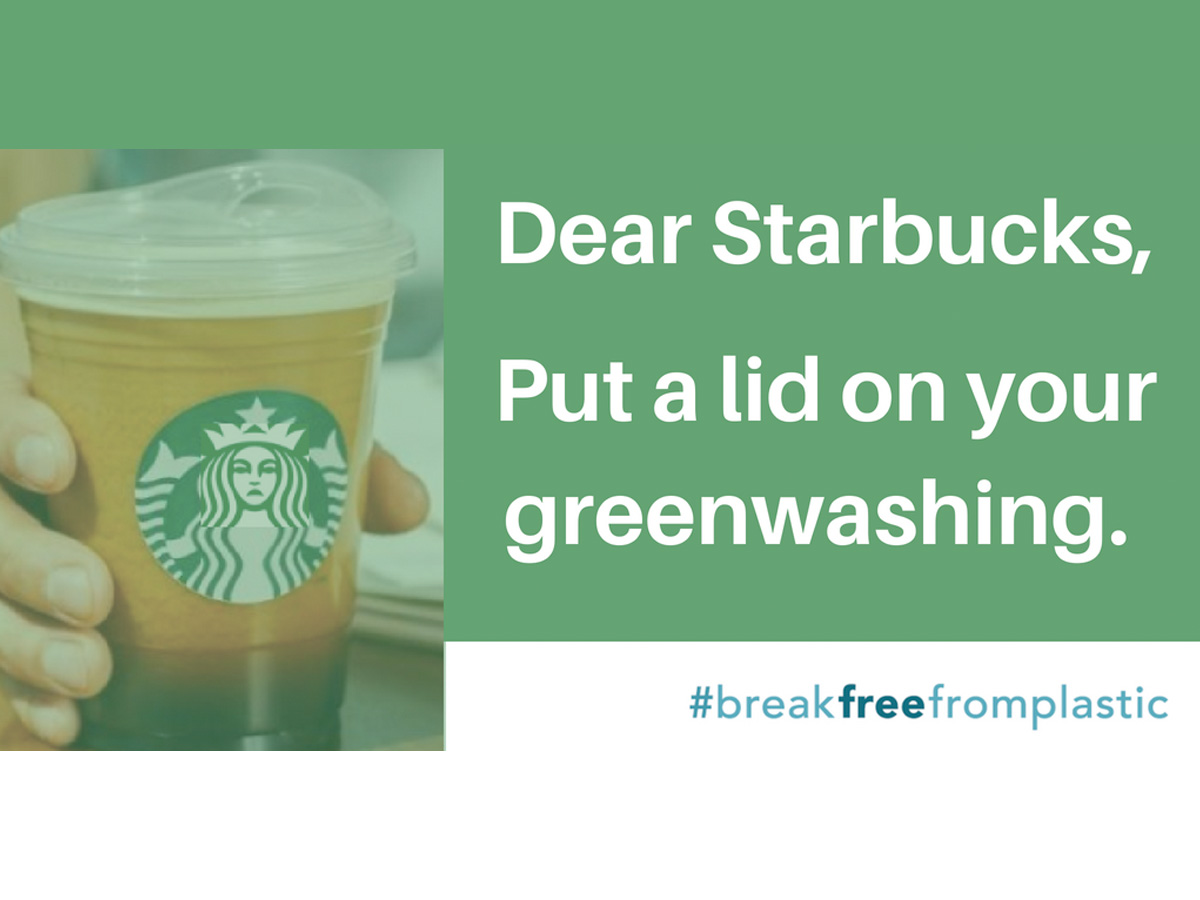FOR IMMEDIATE RELEASE
The #breakfreefromplastic global movement invites Starbucks CEO Kevin Thompson to see where Starbucks trash ends up: much of it across South East Asia.
In an effort to quell growing concerns about Starbucks wasteful packaging, the company just announced to much fanfare that it would phase out plastic straws and replace them with “recyclable” plastic lids. In fact, the same type of plastic Starbucks claims is “recyclable” is being sent to landfills across the nation, or shipped to countries like Malaysia or Vietnam-- where it becomes pollution. “Starbucks’ claims about the ability of #5 plastics to be ‘widely recycled’ are bankrupt,” says Stiv Wilson, Director of Campaigns at the Story of Stuff Project. “This incredible attention to a single product isn’t necessarily a bad thing, but it isn’t quite a good thing either if it doesn’t lead to broader, systemic change in how the world makes, uses, and disposes of the most ubiquitous material in commerce today—plastic,” he added.
As companies like Starbucks are increasingly under fire for their contribution to the plastic pollution crisis, they have primarily relied on recycling as the solution to their wasteful packaging, despite its many flaws. As a result, the US has been sending even larger quantities of “recyclable” plastic to China, causing the tremendous environmental damage that led the country to close its doors. Now the US has started sending its plastic waste to other countries in Asia, sparking these countries to enact similar bans and restrictions.
“Recycling alone is not going to solve the plastic pollution crisis,” said Greenpeace Plastics Campaigner Kate Melges. “In fact, relying on a recycling system that is failing in the U.S. and facing bans overseas will make the problem worse. To date, only 9% of all plastic ever made has been recycled. It is time for companies to move beyond flashy PR moves and start significantly reducing their production of plastic and investing in reuse alternatives.”
In many of the countries Starbuck has stores, there is little to no recycling infrastructure. Not only do Starbucks’ branded straws, hot cups, cold cups, and lids show up in beach cleanups, according to the global trash app, Litterati, Starbucks branded products are easily in the top three of brands identified globally if not number one.
With that in mind, the #breakfreefromplastic movement invites Starbucks CEO Kevin Johnson to visit the communities in Southeast Asia most impacted by the plastic waste created by companies headquartered in the global north.
“The type of plastic pollution we’re seeing in Southeast Asia are produced by global corporations headquartered in North America and Europe,” said Break Free From Plastic’s Global Coordinator Von Hernandez. “While these are the countries that are being blamed for plastic pollution, the ones that are really pushing production are companies located in the global north. They need to bear the responsibility for this waste.”
The deceptiveness of industry’s recycling pledges has hampered progress towards real solutions to the plastic crisis. Monica Wilson, Research and Policy Director at GAIA, states, “We call on Starbucks to be responsible for its own products and packaging and to stop pretending the plastic flooding the market is actually getting recycled.”
For press inquiries, please contact:
Shilpi Chhotray, #breakfreefromplastic, shilpi@breakfreefromplastic.org, 703-400-9986
Claire Arkin, GAIA, claire@no-burn.org, 510-883-9490 ext. 111
Perry Wheeler, Greenpeace, perry.wheeler@greenpeace.org, 301-675-8766




